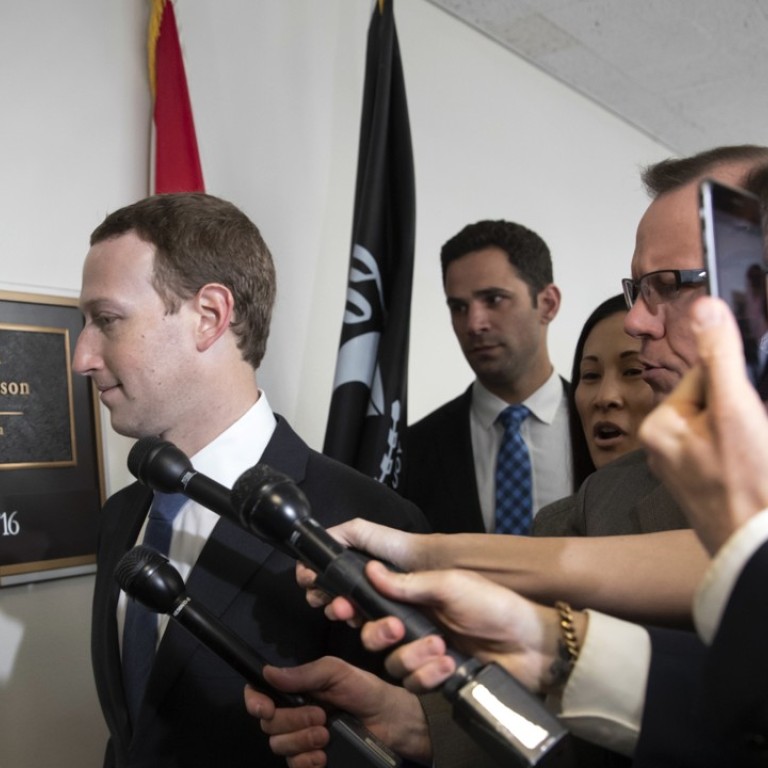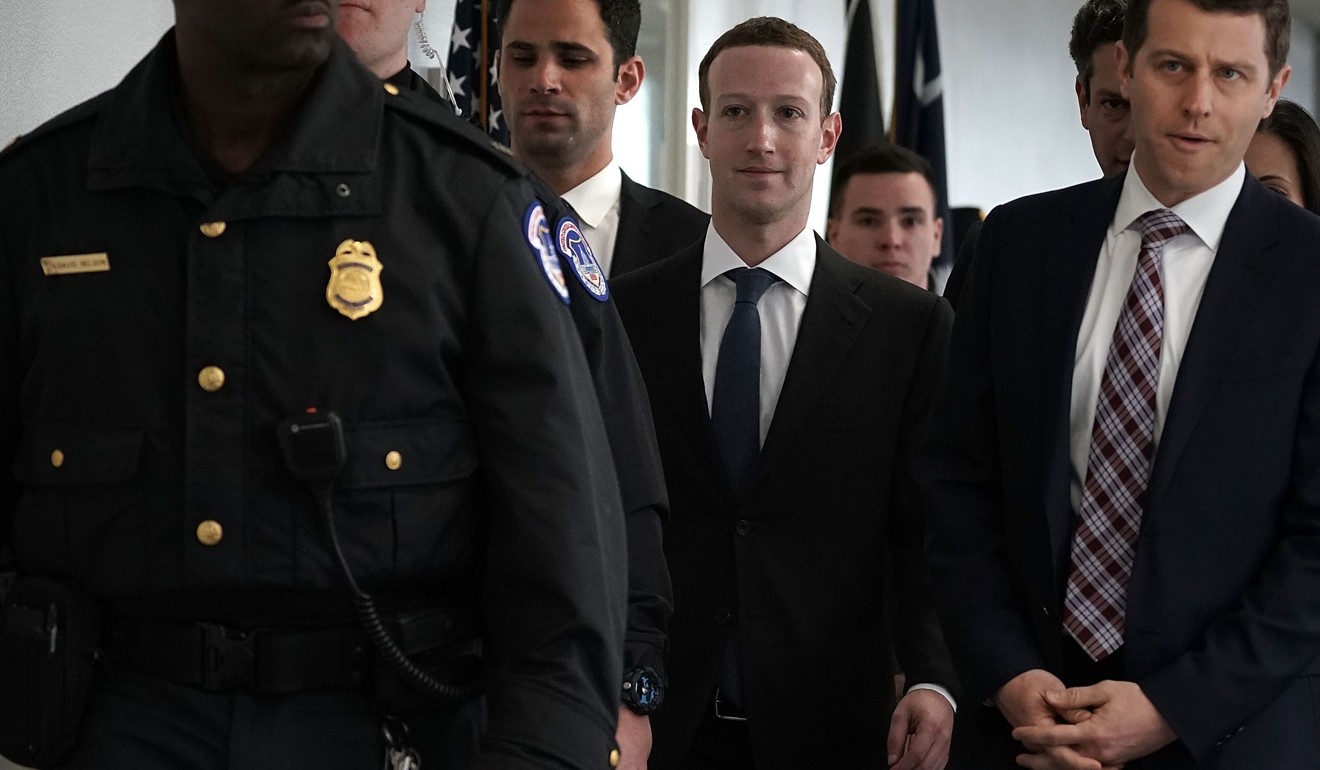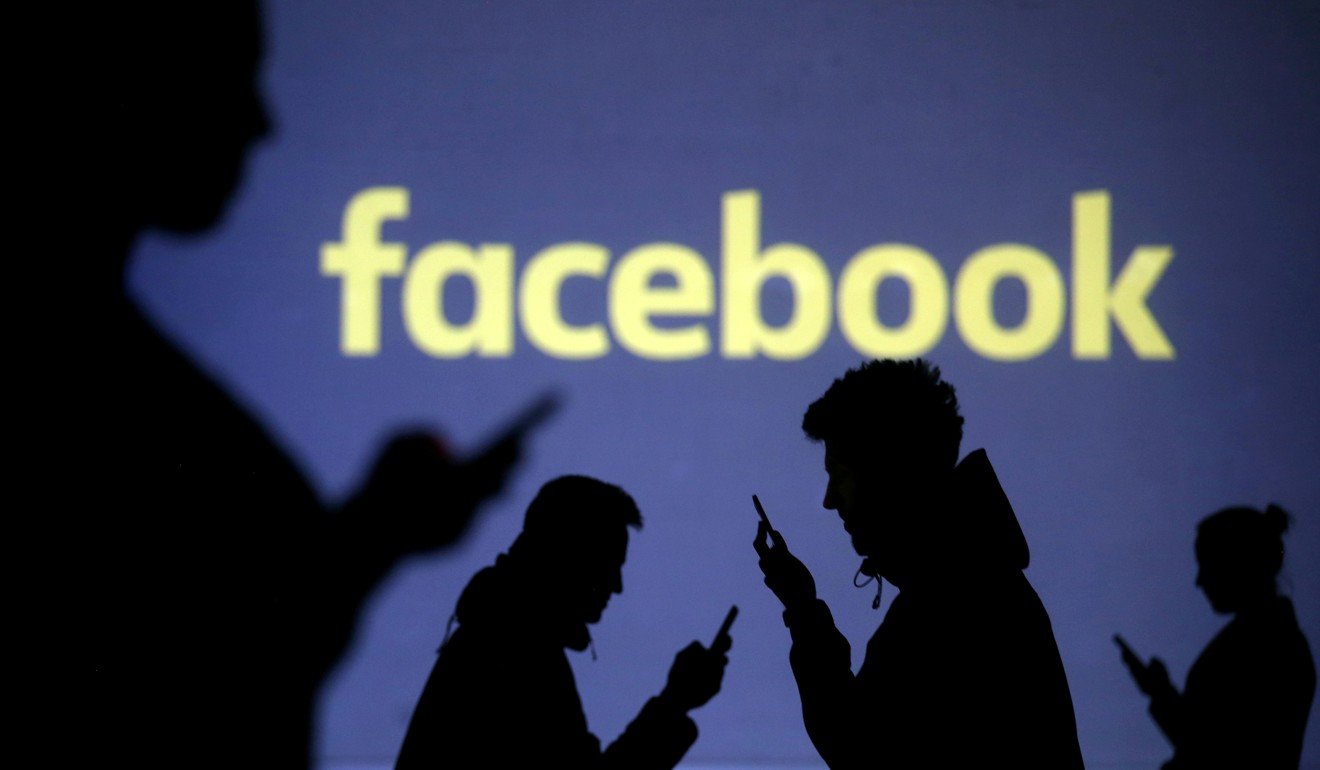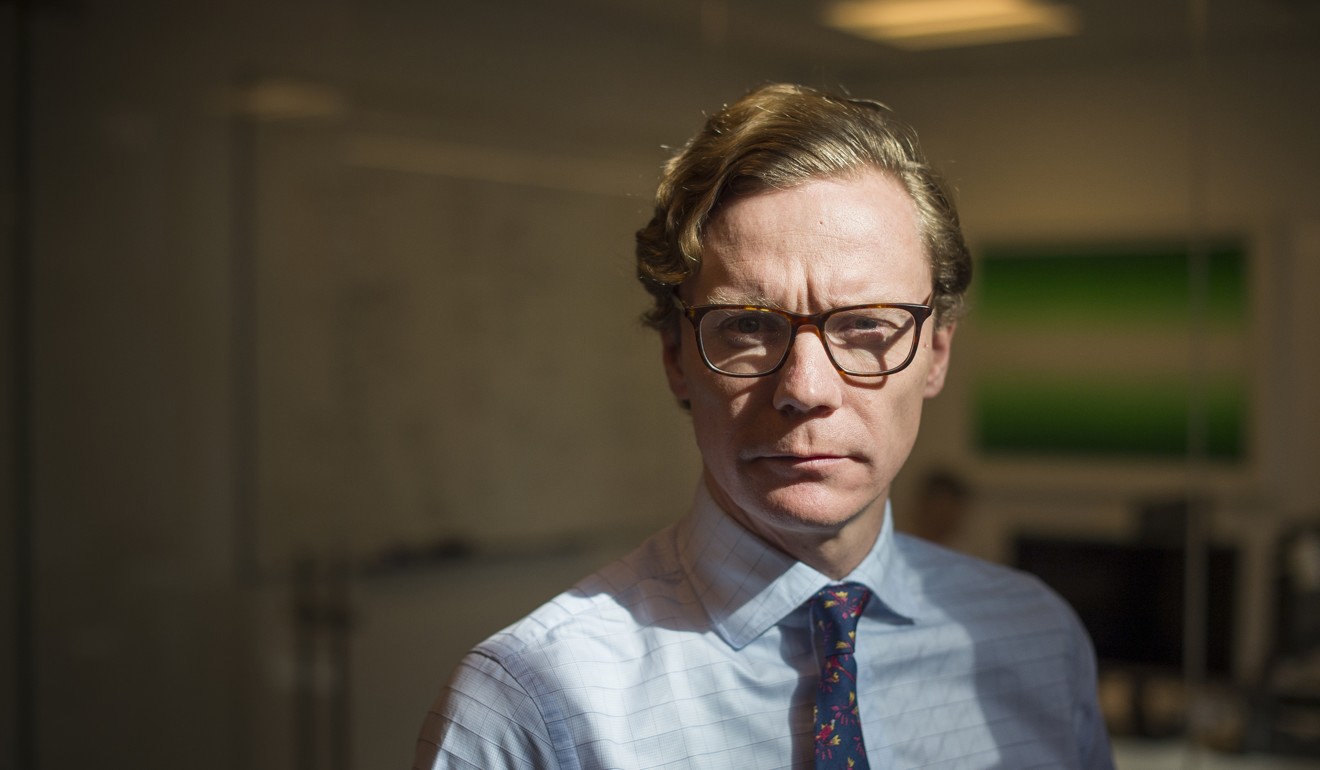
Facebook problems are ‘my mistake, and I’m sorry’, Mark Zuckerberg tells US Congress
In wake of data scandal, social media giant’s chairman is set to testify for the first time on Capitol Hill
Facebook CEO Mark Zuckerberg has admitted that all of the company’s problems are his mistake, in prepared testimony for the US House of Representatives.
The world’s largest social media company didn’t do enough to prevent its tools from being used for harm, especially in terms of fake news, foreign interference in elections, hate speech, developer policies and data privacy, said Zuckerberg, Facebook’s co-founder.
“It was my mistake, and I’m sorry,” Zuckerberg added, according to a copy of the prepared testimony ahead of his appearance in front of the House Energy and Commerce Committee on Wednesday. “I started Facebook, I run it, and I’m responsible for what happens here.”
The committee released his opening testimony Monday, even as Zuckerberg was meeting privately with lawmakers ahead of his first time testifying on Capitol Hill.

Zuckerberg will also testify in the Senate on Tuesday about the company’s continuing data-privacy scandal, the worst privacy crisis in Facebook’s history, and how it failed to guard against other abuses of its service. He is also expected to be asked about Russia’s use of social media during the 2016 US election.
The top Democrat on the Senate Commerce Committee, Senator Bill Nelson of Florida, said he believed Zuckerberg was taking the hearings seriously “because he knows there is going to be a hard look at regulation.”
Zuckerberg will try to stress Facebook’s contributions to the world, while saying he had not taken a broad enough view of the consequences of the company’s technology.
The prepared testimony recounts many of the updates Facebook has made to improve security since revelations that Cambridge Analytica, a political consultant with ties to Donald Trump’s presidential campaign, obtained personal information on as many as 87 million users without their consent.
It also confirms that Facebook, based in Menlo Park, California, knows little about what Cambridge Analytica did with the data, or even whether it still has it. Facebook’s timeline about the breach relies on outside news reports, not the company’s own investigation.

Also Monday, Facebook suspended another app firm that may have misused data. The company said that CubeYou, a firm associated with the University of Cambridge Psychometrics Centre, will be suspended after CNBC notified Facebook that CubeYou was collecting information about users through quizzes.
In his testimony, Zuckerberg says that the company has taken several steps to restrict outsiders’ access to people’s personal information on Facebook.
He also said the company is investigating every app that had access to a large amount of information before the company moved to prevent such access in 2014 – something that came too late in the Cambridge Analytica case.
How to find out if your Facebook data has been swept up in the Cambridge Analytica scandal
Zuckerberg also addresses Russian election interference and acknowledges, as he has in the past, that the company was too slow to respond and that it’s “working hard to get better.”
“We will continue working with the government to understand the full extent of Russian interference, and we will do our part not only to ensure the integrity of free and fair elections around the world,” Zuckerberg continued.

He also said that as many as 146 million people may have received information from a Russian agency that’s accused of orchestrating much of the cyber-meddling in the 2016 presidential election.
He said Facebook found about 470 accounts and pages linked to the St Petersburg-based Internet Research Agency, which generated around 80,000 Facebook posts over about a two-year period.
Separately, Zuckerberg said in a Facebook post that the company is establishing an independent election research commission that will look into the effects of social media on elections and democracy.


